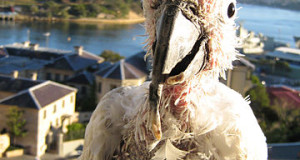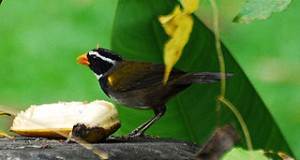Parrots are among the most vocally gifted of birds, and rely heavily upon complex communication skills when interacting with one another. Their vocalizations originate in the syrinx, or “voice box”, and it is from this organ that their voices’ complexities were assumed to originate. However, as bird keepers know, parrots continually bob their tongues up and down when calling or imitating speech. Wondering why parrots might do this, researchers at Indiana and Leiden (Netherlands) Universities looked closely at this behavior.
The Parrot Tongue at Work
Their work led to the discovery that the tongue’s influence on sound may be as important to parrots as it is to people…in common with us, the sound that leaves the parrot’s voice box is not that which eventually exits the mouth. Parrot tongue action is finely controlled, and variations of a fraction of a millimeter can produce sounds that differ in character as much as do the human ‘O” and “A”.
As hobbyists know, parrots are both highly intelligent and social. So, in retrospect, it makes sense that they would have evolved a means of producing complex sounds to communicate with each other. Also, they can be quite choosy (maddeningly so, to breeders!) when deciding upon a mate – perhaps the tongue’s action imprints each parrot’s voice with a distinct quality, as it does in people, and this somehow functions in mate selection.
Parallels in People
These findings have important implications for human speech and communication behavior research. In birds as in people, vocalizing is largely a learned behavior, and specific areas of the brain are involved. Studies of these areas, and how they affect the parrot’s ability to imitate human voices, may shed light on the origin and treatment of human speech maladies.
There is always something new being reported somewhere in the world of birds.
You can read more about the parallels between human and parrot (and other animal) vocal abilities at:
http://news.bbc.co.uk/2/hi/science/nature/3430481.stm
 That Bird Blog – Bird Care and History for Pet Birds
That Bird Blog – Bird Care and History for Pet Birds


